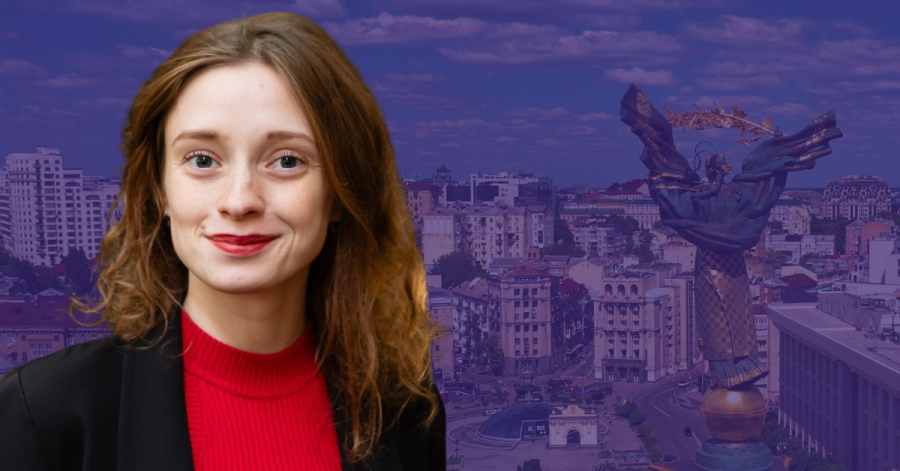Ukraine’s tech and startup ecosystem is far from stagnant. It continues to grow and adapt in impressive ways. This is what Marharita Horokhova, Project Manager at the non‑profit civic union Techosystem, shared with us in a conversation during Invest in Bravery: Defense & Resilience in Kyiv earlier this year.
She spoke about how Ukrainian startups are navigating challenges, attracting global investment, and what sets their founders apart.
Last year, Google reported that the total value of the Ukrainian startup ecosystem has risen to an estimated €28 billion – including twice the average number of unicorn companies per funded startup in Europe.
Moreover, Kyiv has been named among the Top 20 Rising Tech Hubs globally in Dealroom’s latest Global Tech Ecosystem Index.
Ukraine’s startups push on, seeking global support
Horokhova explains that while Ukraine is facing massive obstacles, the startup scene remains very much alive. That message is vital to communicate, particularly to investors outside the country.
“From conversations I’ve had with international investors, there are still a lot of misconceptions,” she says. “Like, ‘Why would I invest in Ukraine? There’s corruption. There’s war. No one’s left. The system isn’t functioning.’ Or they assume that all investment is now going into defense tech and that nothing else is happening.”
Marharita points out that their goal now is to increase visibility and make sure people outside Ukraine know what’s really happening within the ecosystem.
“Some funds are even investing in defense tech, which is great. But we also need support for other verticals. There are incredible startups that deserve attention. Of course, defense is a priority – but it’s not the only thing happening.”
Horokhova explains that Techosystem plays a key role in supporting international investors by helping them understand Ukraine’s business environment, including tax, legal frameworks and local due diligence.
“We have an entire support infrastructure in place. All the investors need to do is bring their interest and capital.”
Local investment gaps and the need for foreign support
When asked about local investment initiatives, Marharita is candid: “There have been announcements about creating a Fund of funds, but not much has materialized. It’s hard not to be skeptical.”
Still, she notes that there are several active Ukrainian funds – Venture Horizon, Fourth Circuit, and Green Flag (American-Ukrainian).
“The biggest issue locally is the gap between Seed and Series A. Most Ukrainian funds are either investing at the very early stages or at Series A and later. But there’s a missing middle.”
That’s where international funds can play a pivotal role.
“They can co-invest alongside local funds or provide follow-on funding. And we’re here to help them do that. We understand that due diligence is harder in a country at war. That’s why our local funds act as lead investors; we do the groundwork, and international VCs can confidently follow.”
Unicorns in wartime
Remarkably, Ukraine has produced two new unicorns since the full-scale invasion began. Creatio is a no-code business process automation platform founded in 2011 by Kateryna Kostereva. It crossed the $1 billion valuation mark in 2024, marking it the first Ukrainian-born unicorn founded by a woman. This year, Quantum Systems, a German-Ukrainian developer of vertical take-off and landing reconnaissance drones, reached unicorn status after raising €160 million in a Series C round.
Marharita attributes their success to a key factor: “They secured funding at every stage: pre-seed, seed, Series A, and beyond. That’s what allowed them to scale.”
She notes that while many of these companies have relocated their headquarters abroad, often to the U.S., a large portion of scaleups still have operations in Ukraine.
“About 30–40% of scale-ups (3–5 years old) are still active here. That’s significant,” she adds.
A diverse startup landscape
The war has had a real impact on the country’s talent pool, and Marharita acknowledges that workforce mobilization, especially of founders and engineers, poses serious challenges.
“If a founder is drafted, it’s incredibly difficult to keep a startup running. Especially in defense tech, when parts of the engineering team are sent to the front lines.”
Still, she highlights a trend of resilience and flexibility: “Many founders are working from the front line, from bomb shelters. Others are moving into tech from unrelated sectors. IT is mobile – it can adapt.”
When asked what other startup ecosystems can learn from Ukraine, especially those in CEE, Marharita doesn’t hesitate: “It’s the sense of urgency and responsibility. Ukrainian founders are all-in. They often don’t have backup plans. No safety net. They leave their jobs and put everything into their startup.”
She noted that European founders tend to be more relaxed, often viewing startups as one of many possible ventures. If a business fails, they typically move on to the next opportunity. For many Ukrainians, however, launching a startup can feel like a singular chance, and they approach it with that level of seriousness.
“Resilience is the key. I’ve seen founders take investor calls from bomb shelters, then wake up the next morning and keep going. That mindset isn’t going away, even after the war ends,” says Horokhova.








